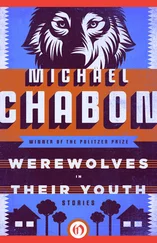Michael Chabon - The Mysteries Of Pittsburgh
Здесь есть возможность читать онлайн «Michael Chabon - The Mysteries Of Pittsburgh» весь текст электронной книги совершенно бесплатно (целиком полную версию без сокращений). В некоторых случаях можно слушать аудио, скачать через торрент в формате fb2 и присутствует краткое содержание. Жанр: Современная проза, на английском языке. Описание произведения, (предисловие) а так же отзывы посетителей доступны на портале библиотеки ЛибКат.
- Название:The Mysteries Of Pittsburgh
- Автор:
- Жанр:
- Год:неизвестен
- ISBN:нет данных
- Рейтинг книги:5 / 5. Голосов: 1
-
Избранное:Добавить в избранное
- Отзывы:
-
Ваша оценка:
- 100
- 1
- 2
- 3
- 4
- 5
The Mysteries Of Pittsburgh: краткое содержание, описание и аннотация
Предлагаем к чтению аннотацию, описание, краткое содержание или предисловие (зависит от того, что написал сам автор книги «The Mysteries Of Pittsburgh»). Если вы не нашли необходимую информацию о книге — напишите в комментариях, мы постараемся отыскать её.
The Mysteries Of Pittsburgh — читать онлайн бесплатно полную книгу (весь текст) целиком
Ниже представлен текст книги, разбитый по страницам. Система сохранения места последней прочитанной страницы, позволяет с удобством читать онлайн бесплатно книгу «The Mysteries Of Pittsburgh», без необходимости каждый раз заново искать на чём Вы остановились. Поставьте закладку, и сможете в любой момент перейти на страницу, на которой закончили чтение.
Интервал:
Закладка:
I found her room apt and exciting: salmon-colored, neat, draped with white lace, in one corner a partially dismembered mannequin wearing a wedding dress and a nose ring. Huge posters covered the walls, of Diana Ross and the Supremes, of Arthur Rimbaud, and of the immense gibbous face of Garbo. Across the mirror of her dressing table hung a rosary; along the dressing table's surface was a vast collection of flacons and little bottles of womanly liquids. I sat on the edge of her bed, inhaling the remnants of her cologne, while she went to the toilet. Among the few books that she kept on her slender night table, her favorites, I supposed, were The Selfish Giant and The Happy Prince by Oscar Wilde, and The Story of O and Mailer's Marilyn.
When she came back into the room, she wore nothing but a peach teddy, wide-hipped, her face coppery and new-washed, her hair pulled up by a white ribbon. She looked I940ish, the wife of some soldier off fighting the Germans, and briefly I felt the thrill of being an intruder in the house.
"You wear Opium," I said.
She sat beside me and put her face against my neck.
"Aren't you smooth. Even know your perfumes," she said, and she bit me.
"Here we go," I said. I brought her down on the chenille spread and breathed in the soap and the Opium at the base of her jaw, where her pulse was making itself known.
While Phlox, naked, broke eggs into a white bowl for French toast, I called the Duquesne and asked for my father's room. I stood in a corner of her lovely white kitchen, lazily cradling the phone with my shoulder, looking down at the sunny backyard and smelling my fingers.
"Bechstein," said my father, sounding chipper.
"Bechstein," I said. "This is your son."
"Ah, yes. My son. How are you, son? How's your summer thus far?"
Fine, Dad. I'm calling you from this girl's kitchen and she's standing here naked, and you know, Dad, I can see that some women do indeed look a little like guitars.
"Fine."
"Am I going to buy you yet another expensive lunch downtown?"
"I have to work, Pops."
"Then I propose an extremely expensive dinner on Mount Washington."
"Great. We can ride the Incline."
"Yes, the funicular," said my father. It was one of his favorite words.
"I'll come to the hotel around six," I said, and we hung up.
"That was quick," said Phlox.
"We always have that conversation when I call him at his hotel. It's my favorite conversation in the whole world."
I sat down at the kitchen table and watched her cook. She professed to love to cook; she did a lot of authoritative drawer opening, and laid the strips of bacon in the pan as though there were some science involved, but she didn't really seem to be enjoying herself. She tormented the French toast with her spatula, peering under each slice every five seconds, and she cursed irritably when the bacon fat spat. She left the kitchen to put on a robe and a Vivaldi record, and when she came back things were burning. I said that I rarely ate breakfast anyway and only needed a cup of coffee, which annoyed her. So I ate like a pig.
"Tell me about yourself," I said, chewing.
"I was born, grew tall and fair, knew both joy and tears, grew old, and died an abbess." Phlox, recognizing early that she lacked a strong sense of humor, or rather that she lacked the ability to make up jokes, had memorized thousands of bizarre passages from books and from here and there, and had developed, in place of humor, an ability to drop these bombs into a conversation, sometimes with incongruous, killer accuracy. She had, in fact, a number of unlikely conversational skills, or rather stunts. She knew and could explain with admirable clarity the secrets of machinery, how elevators tell the third floor from the fourth, why a spot is born and quickly burns away when a television is turned off; she could mentally alphabetize a fairly long and random list of words; and, most impressively, she remembered everything anyone had ever told her about himself, trivial things-the name of a childhood pet goldfish or of a distant cousin. This last ability made her the bane of a casual liar. Deceiving her demanded a great deal of care and attention.
"I understand that you've been born again?" I said.
She banged her juice down on the table and rolled her eyes, as though she had recently run out of patience with regard to Jesus. "No, that was just a thing. I'm not saying that I don't believe in God, because I do believe in God, even though it's more branché not to. But do you know what those Christians told me? They told me I would have to learn to live without sex. I can't live without sex, Art. It's ridiculous. If Jesus really loves me, then He wants me to sleep with boys."
"Amen," I said. "So what other things have there been?"
"Well, let's see. I've done the punk thing, the biker's girl thing, the seamstress thing, the prep school thing, and sort of the housewife thing, although I wasn't married. I've never done the marriage thing."
"You were a seamstress?"
"I sew like an angel."
"What's next?" I said, thinking that this was a glaring straight line.
"I don't know," she said, lightly. "Probably a broken heart."
"Ha," I said.
That evening I rode downtown on an unaccountably empty bus, sitting in the last row. At the front I saw a thin cloud of smoke rising around the driver's head.
"Hey, bus driver," I said. "Can I smoke?"
"May I," said the bus driver.
"I love you," I said.
In the big, posh, and stale lobby of the Duquesne Hotel-in a city where some of the men, like my father, still wear felt hats-one can still get one's hair cut, one's shoes shined, and buy a racing form or a Tootsie Roll. When I was a kid, and we would come into Pittsburgh to visit with my mother's relatives, I used to think that my father, who was perhaps born forty years too late, had had the Duquesne built for him. My father believed in the sports page brought up to his room on a tray with the java in the morning, and in the cigarette girl who prowled the bar with her Luckies and Philip Morris Commanders. Although he was in many ways a man of modern tastes, for music, hats, and hotels he looked to the Depression, and loved nothing but Goodman, snap brims, and the Duquesne.
The door to his room was unlatched; I pushed against it and found him sitting in a chair by the window, talking on the telephone. I made a noise as I came in, so that he could end the call if it was something I ought not to hear, but he half-waved, puckered his lips at me, and kept on talking. From his muttered replies I tried to guess to whom he was talking.
"Fine, fine," he said. "Listen, Artie just walked in. Yeah, yeah, he looks great. I'll tell him hello, sure. Right. Thirty-seven five. Right. See you tomorrow. Good-bye."
"Uncle Lenny," I said.
"He says you should come for dinner."
"I can't stand Aunt Elaine."
"Neither can he. My God, Art, your hair-you look terrible. Do you want me to give you the money to buy a comb?"
"No, thanks, Dad. I'm going to make one at home. Out of common household items. You look great."
"Business is good."
"Oh."
We both frowned. I never knew what to say upon hearing that business was good; it was always as though my father had just gleefully told me that he'd taken out a huge life insurance policy on himself, with me as beneficiary.
Then we said we were hungry and went out, down the laborious old elevator and into the street. A thunderstorm was imminent; big dusty rings of newspapers and the straw-pierced plastic lids of paper cups blew along Smithfield Street. We walked across the Smithfield Street Bridge to the South Side, and my father reminded me of the day fifteen years before when we'd driven across this bridge and I had astonished him by spelling Monongahela, unbidden.
Читать дальшеИнтервал:
Закладка:
Похожие книги на «The Mysteries Of Pittsburgh»
Представляем Вашему вниманию похожие книги на «The Mysteries Of Pittsburgh» списком для выбора. Мы отобрали схожую по названию и смыслу литературу в надежде предоставить читателям больше вариантов отыскать новые, интересные, ещё непрочитанные произведения.
Обсуждение, отзывы о книге «The Mysteries Of Pittsburgh» и просто собственные мнения читателей. Оставьте ваши комментарии, напишите, что Вы думаете о произведении, его смысле или главных героях. Укажите что конкретно понравилось, а что нет, и почему Вы так считаете.












